While the murderer is talking, Mr. Kindt nods, and says, lovely, and closes his eyes, and you find yourself thinking of someone you once knew, and how she listened to poetry. This person, whom you once knew very well it seemed, listened with her eyes half shut and her small, dark hands curled around a drink at a table lost in the smoke of the bar. You shake your head. You look at Tulip. She is tall, exquisite. Her fingers are long. You think of the knockout. You think, I should have taken a number. You stop thinking. The murderer keeps talking, and your own eyes close, and the room revolves around you, and the murderer says, If we begin to die when we live, and long life be but a prolongation of death; our life is a sad composition, and you open your eyes and the murderer is still looking at you, and you think, the composition is sad, it is very sad, yes, it is sad, says Mr. Kindt, from somewhere far away, and the murderer, in the most tender voice, continues speaking to you.
A polar bear can smell a rotting carcass from ten miles away. Not being a polar bear or anything else with the intuitive equivalent of an exceptional olfactory apparatus, it stands to reason that I can’t. So I shouldn’t feel bad. About not getting it. Right.
I know something about polar bears because once Mr. Kindt, who came often in his white slippers and light-blue gown after that first night to visit, and who proved at first to be very kind, very sweet, and more than a little amusing, watched a program on them with me. He came into my room, as he usually did, after dark, and slipped under my covers, and on the television set that hangs so firmly suspended above my bed by its mechanical arm, we watched polar bears swim and hunt and fight. We watched polar bears ride walruses, trying to kill them, hurting them terribly and being hurt terribly in return, and we watched polar bears carefully lick their tiny cubs. We watched polar bears bark impressively at Arctic foxes that came too close, and we watched them, presumably starving, wander with who knows what in their minds far out over the ice. We also watched them swimming both from above the surface of the water and from below. From below you could see the handsome reflection of the white bears on the water’s surface, so that it seemed they were swimming, simultaneously, in two places — one as lovely and as ghostly as the other. We watched and watched, wishing, we agreed, that the program would never end. At one point, Mr. Kindt made some sort of a high-pitched growling sound. I did the same. Neither of us sounded remotely bearlike. We sounded more like the plump young seals that polar bears love so much to eat. We laughed a great deal at this and nudged at each other with our elbows. Mr. Kindt flipped over on all fours and cut capers on the bed. I’m a polar bear hunting its prey, he said. I laughed. He did the growl and bit my ankle through the covers. He bit so hard it made my eyes water and left marks. I didn’t want to say anything to spoil our fun so I did a little writhing and groaning and laughed with him when he let go. In short, it was the sort of program we enjoyed. Nature or history. We also liked programs about economic and cultural issues, although such programs sometimes proved to be too much for Mr. Kindt. After we watched a documentary about the difficulties of the North Sea fishing industries, which largely focused on the age-old trials and tribulations of herring fishermen and the shiny little herring itself, for example, I asked Job to bring me a box of tissues to keep by my bed.
Get a fucking box of tissues yourself, Job said.
Mr. Kindt was very delicate with his tissues, dabbing carefully at his eyes and softly blowing his nose, always folding the tissue at least twice after he had used it before throwing it away. I am not sure why it appealed to me to lie or sit next to this fastidious old gentleman who was capable at one moment of biting my ankle and the next of breaking down into tears, most energetically, as it occurred, about fish, most pronouncedly when they were filmed lying on the docks in great, rotting piles. Maybe it was because he cried and blew his nose without making a sound, or because he seemed to weigh nothing as he lay there beside me, or because he was so short and awkwardly built and made his remarks in overlong sentences, or because, let’s face it, he was so funny-looking, like two of those inflatable punch dolls glued together at the bottom so that instead of springing back up when they’re hit they just roll around on the floor.
During his early days in the city, he told me when I asked him about his breakdown during the herring program, he had been adversely affected by a stint as a driver for a company called Fish Lines Quality Frozen Products, which had involved both loading and unloading “the endless boxes of mangled, frozen, breaded fish corpses,” all of them destined for undistinguished fates on the more or less miserable shelves of second-tier outer-borough grocery stores. I giggled a little when he said the last part. He patted my hand and said that while he hadn’t meant his comment to be humorous, he could understand how it might seem so. Especially when morphine was involved. In truth, he said, when he cast his mind back to those unpleasant days, the image that came to him — of his sweaty, dirty, scowling face crowned by an oversized, moldy Fish Lines delivery driver hat and of his hands completely lost in an enormous pair of vile-smelling Fish Lines insulated gloves — made him smile. When I asked him what had prompted him to take the job in the first place, he said he had accepted the position, which he had kept for far too long, (1) because Fish Lines, as everyone in those days knew, had once stood for quality and freshness in aquatic comestibles and (2) in order to put something in the purse that was growing only fitfully larger through his efforts as a thief.
What kind of things did you steal? I asked him.
Oh, this and that, he said.
Any capes? Any copper coins?
Mr. Kindt raised an eyebrow and smiled.
So you were listening to me that night.
You still haven’t gotten me that reproduction.
That’s very true, Henry. But at any rate, that sort of thing, capes and cows and whatnot, was much, much earlier.
All right, I said.
(3), he said, one of his personal eccentricities was a life-long love of presenting himself in different guises. He had, and the thought now instilled in him both amusement and disgust, admired from afar the look of the Fish Lines drivers as they shepherded their frozen charges around the outer boroughs in their long-since-vanished silver trucks.
Little did I know, he said, that slipping into that uniform would turn me into such a caricature, such a clown. Or that dealing every day in frozen, rumpled boxes of mashed fish products would fill me with such horror.
I used to steal wallets at work, I said.
And? he said.
And I got caught. I’m better at it now.
I’m sure you are. He tapped my knee once or twice then pulled what looked like a cracker out of the pocket of his robe and put it into his mouth. He chewed a little, swallowed, then looked out the window.
There is some sort of netting out there, he said.
I know.
He looked back at me and shrugged.
I once stole a box of the foul product I was meant to deliver to a family restaurant called Knudsen’s on Staten Island, he said. I took it home, opened it, gazed for a time at the half-thawed oily mess, tried to imagine the wads of white flesh I held in my hand back into the sleek bodies they had come from, failed, and flushed the contents down the toilet.
Back into the water, I said.
A mockery of water. Knudsen’s called and I was asked to leave Fish Lines the next day. I sent the president of the company a letter reminding him that Fish Lines had once dealt only in the freshest of fish and scolding him for trucking in such shoddy, indeed degrading, merchandise. He wrote me back that he was a businessman and that business was good and that I was just “a bowl of sour soup some old lady stuck her foot in,” end of story. Imagine! And, yes, go ahead and laugh.
Читать дальше
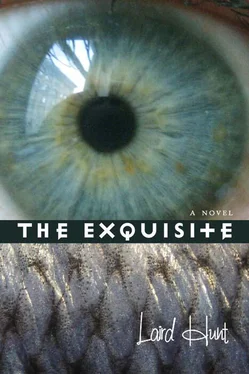
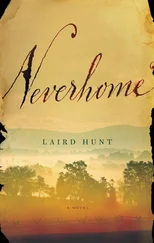
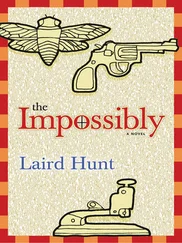



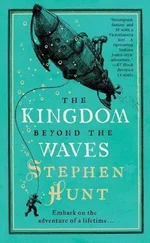

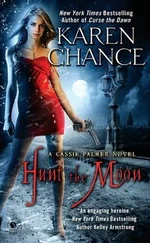

![Беар Гриллс - The Hunt [=The Devil's Sanctuary]](/books/428447/bear-grills-the-hunt-the-devil-s-sanctuary-thumb.webp)

